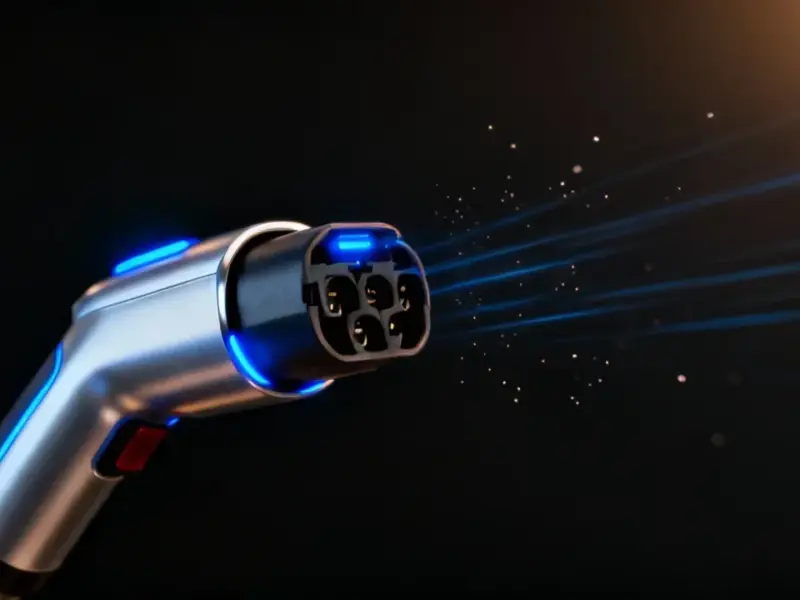According to CRN, battery and backup giant Eaton has announced a $9.5 billion acquisition of data center cooling specialist Boyd Thermal, with the deal expected to close in the second quarter of 2026. The acquisition price represents 22.5 times Boyd Thermal’s projected 2026 adjusted EBITDA, with the cooling business forecasting $1.7 billion in sales for that year. Eaton CEO Paulo Ruiz emphasized that combining Boyd’s liquid cooling technology with Eaton’s power management will help customers manage increasing power demands, particularly in data centers. The move follows Schneider Electric’s recent $850 million acquisition of Motivair, signaling intensified competition in data center thermal management. Boyd Thermal employs over 5,000 people globally and maintains manufacturing across North America, Asia, and Europe.
The AI Power Density Crisis Driving This Deal
This acquisition isn’t just about expanding product portfolios—it’s a direct response to the existential challenge facing data center operators. AI workloads are pushing power densities beyond what traditional air cooling can handle, with some AI server racks now consuming 40-60kW compared to the 5-10kW common just a few years ago. Liquid cooling has shifted from niche technology to essential infrastructure, and Eaton’s move positions them at the convergence point where power delivery meets thermal management. The timing is critical as AI server deployments accelerate through 2025, creating immediate demand for integrated power-to-cooling solutions.
Strategic Implications Beyond the Price Tag
At 22.5 times projected EBITDA, Eaton is paying a premium that reflects the strategic value of controlling both power and cooling in the AI infrastructure stack. This creates a vertically integrated offering that few competitors can match, allowing Eaton to sell complete “chip-to-grid” solutions rather than individual components. The acquisition also represents a defensive move against hyperscale operators who might otherwise develop their own cooling solutions, as we’ve seen with Microsoft’s underwater data centers and Google’s advanced cooling patents. For Eaton, controlling the thermal management layer ensures their power infrastructure remains relevant as liquid cooling becomes standard.
Market Consolidation Accelerates
The data center infrastructure market is undergoing rapid consolidation as established players race to build comprehensive AI-ready portfolios. Schneider Electric’s acquisition of Motivair and now Eaton’s much larger move on Boyd Thermal suggest we’re entering a phase where independent cooling specialists will become acquisition targets for power management giants. This mirrors similar consolidation in the chip industry where NVIDIA acquired Mellanox to control the full AI stack. Expect companies like Vertiv, Delta Electronics, and even industrial conglomerates like Siemens to make similar moves in the coming 12-18 months as the market rationalizes around full-stack AI infrastructure providers.
The 2026 Timeline: Strategic Genius or Market Miscalculation?
The 2026 closing date raises interesting questions about Eaton’s timing strategy. While some might view this as slow-moving corporate bureaucracy, it actually represents a calculated risk management approach. The extended timeline allows Eaton to navigate regulatory approvals while Boyd continues operating independently, minimizing integration disruption during a period of explosive market growth. More importantly, it positions Eaton perfectly for the second wave of AI infrastructure spending when current GPU deployments hit their thermal limits and require retrofitting with advanced cooling. By 2026, the market for liquid cooling in existing data centers could dwarf new construction opportunities.
Competitive Landscape Reshaped
This acquisition fundamentally changes the competitive dynamics in data center infrastructure. Eaton now threatens Schneider Electric’s leadership position in integrated power and cooling, while also putting pressure on pure-play cooling companies to find strategic partners. The deal also creates challenges for NVIDIA’s own liquid cooling initiatives, as Eaton-Boyd could offer chip-agnostic solutions that work across multiple AI accelerator platforms. For data center operators, this consolidation means fewer vendors to manage but potentially higher prices as competition decreases among component suppliers.
Applications Beyond Traditional Data Centers
While the immediate focus is on AI data centers, Boyd’s expertise in ruggedized thermal management for aerospace and industrial applications gives Eaton entry into adjacent high-growth markets. The same liquid cooling technologies that manage AI server heat can be adapted for electric vehicle power electronics, edge computing in harsh environments, and even next-generation military systems. This diversification hedges Eaton against potential slowdowns in data center construction while leveraging the same core thermal management expertise across multiple billion-dollar markets.




